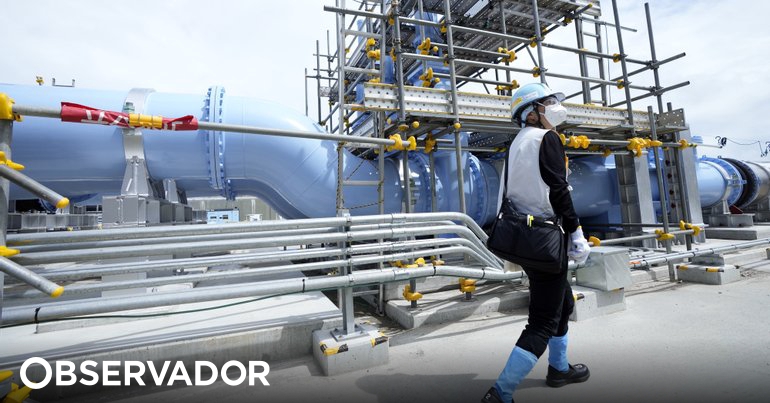
The Japanese prime minister called on China to end acts of harassment by Chinese nationals, including phone calls and stone throwing at Japanese diplomatic facilities and schools in China.
“I must say that it is regrettable,” said Fumio Kishida, regarding the reactions of the Chinese population to the release of wastewater from the Fukushima nuclear power plant, destroyed following the earthquake and tsunami of March 2011.
Fukushima: Japan to release radioactive waters from nuclear power plant into the Pacific Ocean. What is at stake?
Japanese Vice Foreign Minister Masataka Okano summoned China’s Ambassador to Tokyo Wu Jianghao to ask the Chinese people to act calmly and responsibly.
The release of treated wastewater into the ocean, which began on Thursday and will continue for decades, has been the subject of fierce opposition from Japanese fishermen’s groups and some neighboring countries.
In response, China immediately banned all imports of Japanese seafood. In South Korea, thousands of people participated in demonstrations over the weekend to order the discharge.
Harassing acts, including phone calls and stone throwingtargeted Japanese embassies and consulates and Japanese schools in China, while the Chinese government left unanswered requests from Japan for a joint scientific discussion by experts on the release, Kishida said.
The plan for discharges in Fukushima has received approval from the International Atomic Energy Agency (IAEA), which has already guaranteed that the concentration of tritium in the water at the nuclear power plant is well below the expected limit.
Japanese public broadcaster NHK said thousands of calls from China had targeted Fukushima government offices and the operator of the nuclear plant. The broadcaster added that the calls were heard shouting in Chinese and insults.
The Japanese government and the operator of the plant stated that the waters of the nuclear power plant, accumulated since the accident in March 2011, now total 134 million tons.
After being treated, the water used to cool the fuel rods of the three destroyed reactors was stored in about a thousand tanks, occupying a large part of the plant’s area and must be removed to free up space for the construction of cleaning facilities. and dismantling the plant, which will also take decades.
Kishida also pledged on Monday to do everything in his power to protect Japan’s fisheries sector from the impact of China’s import ban and said he would announce support measures later this week.
On Sunday, Japan’s Ministry of Foreign Affairs issued a travel advisory urging Japanese citizens in China to exercise caution, citing an escalation of harassment and violent protests.
the ministry advised its citizens not to speak loudly in Japanese to avoid attracting attention.
In Japan, the liberation plan faced fierce opposition from groups of Japanese fishermen, still trying to recover from the damage caused by the nuclear accident, following the earthquake and tsunami.
Source: https://observador.pt/2023/08/29/japao-pede-a-china-para-travar-assedio-por-causa-de-fukushima/

